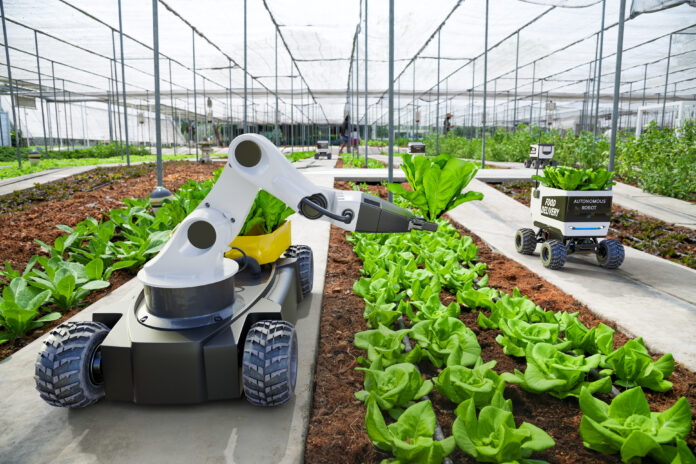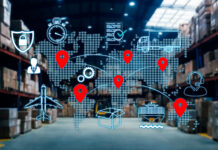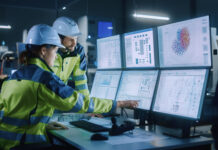
Advancements in robotics and artificial intelligence (AI) have sparked transformative changes across various industries. From underwater exploration to healthcare and beyond, innovative robots and AI applications are reshaping the way we work and interact with the world around us. In this blog, we’ll explore some unique examples of how these technologies are revolutionizing different sectors.
Underwater Exploration
The depths of our oceans have long been a mystery, but thanks to advancements in robotics, underwater exploration has reached new heights. Autonomous underwater vehicles (AUVs) equipped with cameras and sensors are now used for mapping and surveying underwater environments, while remotely operated underwater vehicles (ROVs) delve into the abyss for deep-sea exploration and inspection.
- Blue Robotics: Blue Robotics develops affordable, high-quality underwater drones for marine exploration. Their BlueROV2 is widely used for underwater inspections, research, and environmental monitoring.
- Ocean Infinity: Ocean Infinity operates a fleet of autonomous underwater vehicles (AUVs) equipped with advanced sensors and AI for deep-sea exploration and ocean mapping.
Janitorial Cleaning
In the realm of hygiene and sanitation, robots are stepping in to tackle the dirty work. Robot janitors equipped with cleaning tools and sensors are automating restroom cleaning processes, ensuring facilities stay spotless with minimal human intervention. AI-powered cleaning systems analyze usage patterns to optimize cleaning schedules and resource allocation, maintaining cleanliness and efficiency in public spaces.
- Avidbots: Avidbots manufactures autonomous floor-scrubbing robots designed for commercial spaces. Their Neo robot automates restroom cleaning, ensuring consistent and thorough sanitation with minimal human intervention.
- Brain Corp: Brain Corp develops AI-powered cleaning robots that utilize advanced sensors and machine learning algorithms to navigate and clean indoor environments effectively.
Agriculture
In agriculture, robots are transforming traditional farming practices. Agricultural drones equipped with cameras and sensors monitor crops for signs of pests and diseases, while autonomous tractors and harvesters handle planting, harvesting, and other labor-intensive tasks. AI-driven systems optimize irrigation and soil conditions, maximizing crop yields and sustainability in the face of changing environmental conditions.
- DJI Agriculture: DJI Agriculture offers agricultural drones equipped with multispectral cameras and AI-powered analytics for crop monitoring, pest detection, and precision farming.
- John Deere: John Deere’s autonomous tractors and harvesters incorporate AI and GPS technology to optimize farming operations, from planting and harvesting to soil management.
Construction
The construction industry is also experiencing a technological revolution with the advent of robotic innovations. Bricklaying robots autonomously lay bricks to construct buildings with precision and speed, while drones provide aerial surveys and progress monitoring on construction sites. Robotic exoskeletons enhance the strength and endurance of construction workers, improving safety and productivity on the job.
- Construction Robotics: Construction Robotics specializes in robotic solutions for the construction industry. Their SAM (Semi-Automated Mason) robot assists masons in bricklaying, significantly increasing productivity on construction sites.
- Skycatch: Skycatch provides autonomous drone solutions for construction site surveying and mapping. Their drones capture high-resolution aerial imagery and data for monitoring project progress and optimizing workflows.
Healthcare
In healthcare, robots and AI are enhancing patient care and medical procedures. Surgical robots enable minimally invasive surgeries with precise incisions and delicate maneuvers, while telepresence robots facilitate remote patient monitoring and consultations. AI-powered diagnostic tools analyze medical imaging data for disease detection and treatment planning, revolutionizing the way we diagnose and treat illnesses.
- Intuitive Surgical: Intuitive Surgical develops the da Vinci Surgical System, a robotic-assisted surgical platform used for minimally invasive procedures. The system enhances surgical precision and control, leading to better patient outcomes.
- InTouch Health: InTouch Health offers telepresence robots for remote healthcare delivery and telemedicine consultations. Their robots enable virtual patient visits, remote monitoring, and medical consultations from anywhere in the world.
Retail
Retail is undergoing a digital transformation with the integration of robotics and AI technologies. Autonomous delivery robots navigate city streets to deliver packages and groceries to customers’ doorsteps, while inventory management robots audit shelves and restock products in stores. AI-driven chatbots provide personalized customer service and product recommendations, enhancing the shopping experience both online and in-store.
- Starship Technologies: Starship Technologies manufactures autonomous delivery robots designed for last-mile delivery of goods and groceries. Their robots navigate sidewalks and city streets to deliver orders directly to customers’ homes.
- Simbe Robotics: Simbe Robotics develops autonomous inventory robots for retail stores. Their Tally robot autonomously roams store aisles, scanning shelves to track inventory levels and identify out-of-stock items in real-time.
Embracing the Future: The Impacts of Robotics and AI on Industry
From the depths of the ocean to the aisles of retail stores, robots and AI are revolutionizing industries in ways we never imagined. With continued advancements and innovation, these technologies will undoubtedly continue to reshape the way we live, work, and interact with the world around us. As we embrace the future of automation and artificial intelligence, the possibilities are endless for creating a more efficient, sustainable, and interconnected world.




